Aggression in dogs is one of the challenges most dog owners experience. Thankfully, you can determine whether the breed is aggressive before settling on it for your family. If you’re going to get a husky, one of the questions you’re going to need answers to is, "Are huskies aggressive or do they bite?”
Generally, it is difficult to interact and play with an aggressive dog. You may also find walking around with an aggressive dog difficult as they can bite or frighten people, which is stressful. An aggressive dog may growl, snarl, or bite, which frustrates most dog owners.
This comprehensive guide has everything you need to know about huskies' aggression, what triggers it, and how to manage it.
Use Code HUSKY20 for $20 Off the Fi Dog Collar
As you learn about managing a husky's temperament, enhance your pet parenting with the Fi Dog Collar. Use code HUSKY20 to save $20 and keep a close eye on your adventurous husky. Equipped with a geofence feature, this advanced collar alerts you if your furry friend strays too far.
Plus, with the Fi app, you can monitor their location and activity in real-time, ensuring they are safe and well. Visit TryFi.com today to secure this essential tool for every husky owner, and enjoy the peace of mind that comes with knowing your pet is always within safe bounds.
Are Siberian Huskies Dangerous or Aggressive Dogs?
No, Siberian huskies are not aggressive or dangerous dogs. Siberian Huskies tend to show signs of affection, are sociable, outgoing dogs. The distinctive dog breed with fluffy hair and blue eyes makes many admire their beauty.
Despite these breeds' size and willful personalities, they are not for defending their owner or property. So, they don't have a possessive nature and shouldn't exhibit aggressive tendencies.
However, there are circumstances when Siberian huskies can be dangerous and aggressive. This is if they do not receive enough socialization and positive exposure training. Huskies can also be aggressive if threatened or cornered by your child or other dogs.
Remember, dogs become aggressive when anxious or defending themselves from danger. An aggressive dog can bite for defense if they feel threatened. For example, most huskies are good with kids but bite them if they don’t get enough space to run away when threatened.
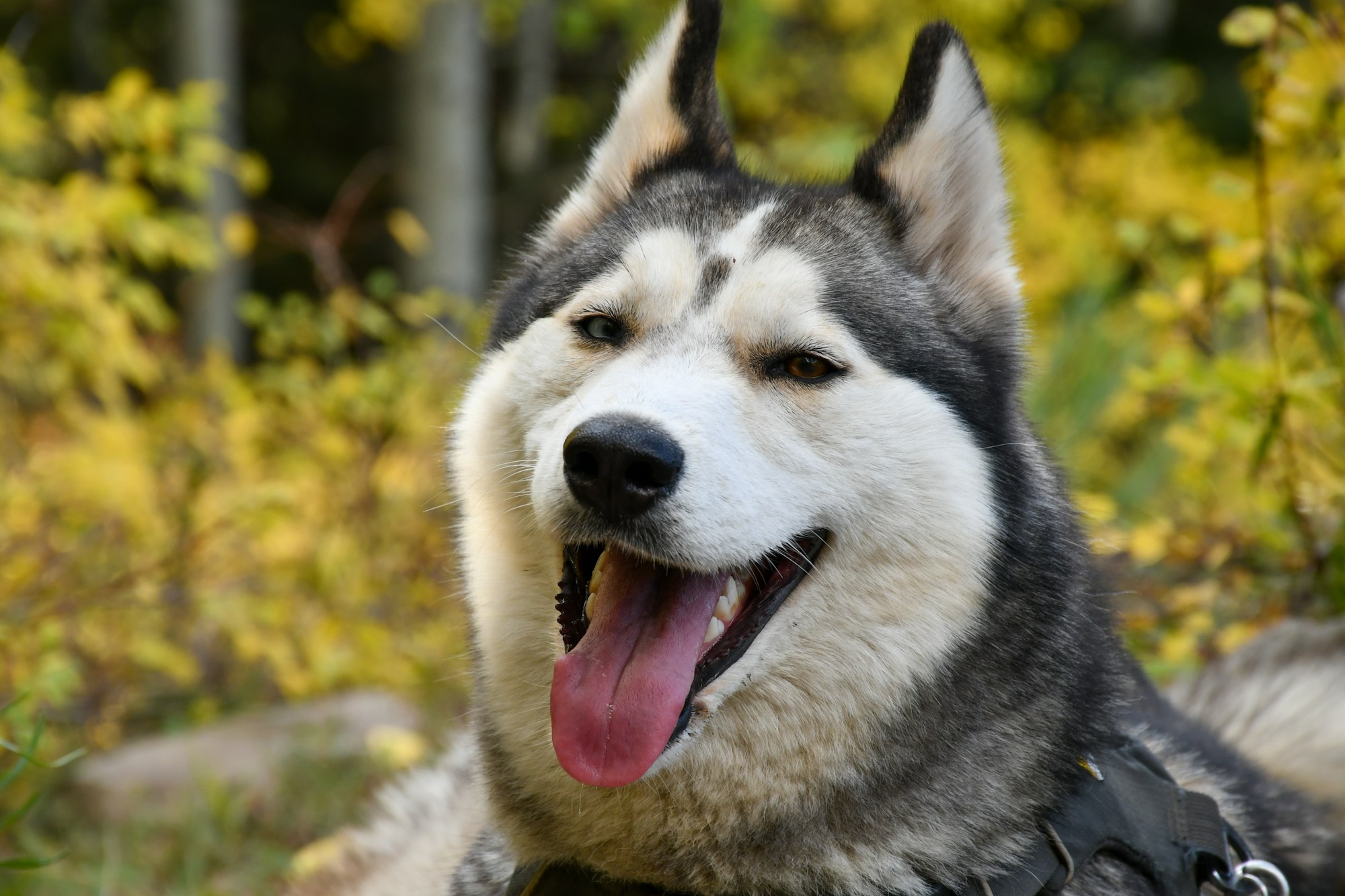
The dog can also engage in “attack” biting if they feel seriously threatened. If your husky “attack” bites, it means they have engaged in defensive biting previously and did this unprovoked.
What Can Cause a Siberian Husky Be Aggressive Around Other Dogs
Your Siberian husky can be aggressive towards other dogs for many reasons. For example, they can be aggressive if they are protecting their territory or possessions from other dogs. This can also happen if you don't expose them to other dogs at a young age.
So, being around other dogs may make your Siberian anxious and fearful. Your husky will become aggressive as a protective mechanism.
Remember, dogs need enough exposure to other dogs to socialize and understand they are not the only canine on earth. The exposure helps them from being fearful and becoming dominant. An intimidated dog may fail to show any sign of aggression, and you might realize this after they bite the other dog.
You should prevent your Siberian husky from being aggressive toward the other dogs. Let them approach the other dog while you are on the lead. Watch their every step to identify any signs of aggression and correct them.
You can pull the husky away, scold or praise them when they manage to tolerate/ignore the other dog. Do this until the aggressive behavior stops and the Siberian husky accepts other dogs.
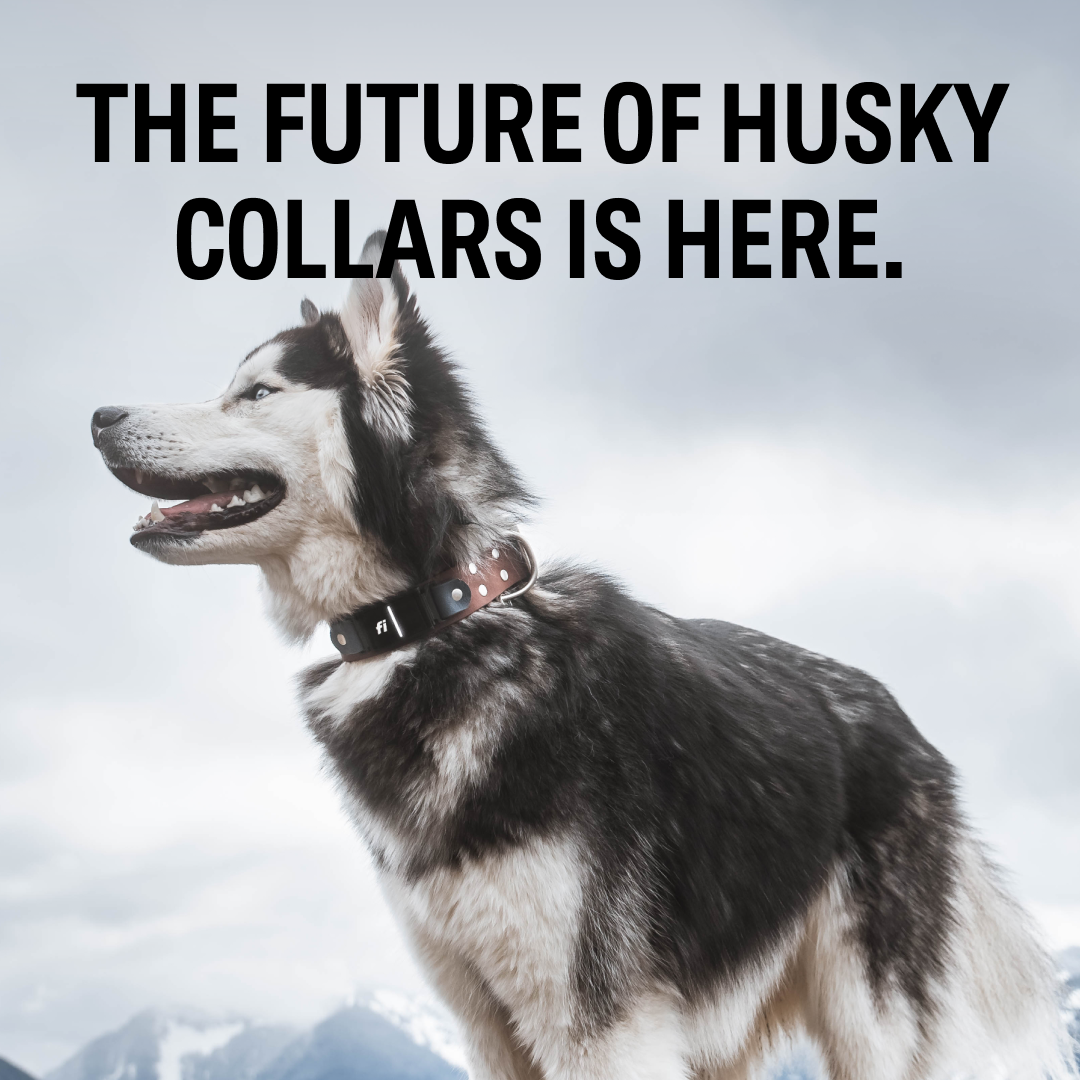
Food Related Aggression
Your Siberian husky can have food-related aggression when protecting their favorite food from other dogs or people around them. The dog can be aggressive if another person or dog approaches where the food bucket makes them wild.
The dog's survival instincts can make them dominant and aggressive to protect their food and make the rest act as per their wishes. Your Siberian husky can also become aggressive when hungry and looking for food. In such a case, the dog can be irritable and anxious.
To stop such behavior, you must train your Siberian husky on the best behavior around food. If you have several Siberian huskies, give them food where they won’t fight. You can identify the ideal feeding location for every husky to prevent them from having food-related aggression.
Alternatively, you can train your husky on pack behavior. This is where your dog can leave their food when someone is around and wait until the person moves away. The pack behavior training teaches your husky that it can't dictate your conduct when food is around.
Toy Related Aggression
Your Siberian husky can also have toy-related aggression towards other dogs or people. Your dog can get aggressive if their favorite toy is in question and they are trying to defend it. It can be their chew toy or play toy.
You can train your husky to avoid toy-related aggression and let it go whenever needed. The best training for such is the recall training, where the dog allows you to take the toy they’ve been protecting without rebelling.
Do this repeatedly to allow your dog to understand they can share or give their toys without showing aggression. You can also introduce verbal cues like “give” to enable your husky to let go of their toy without aggression.
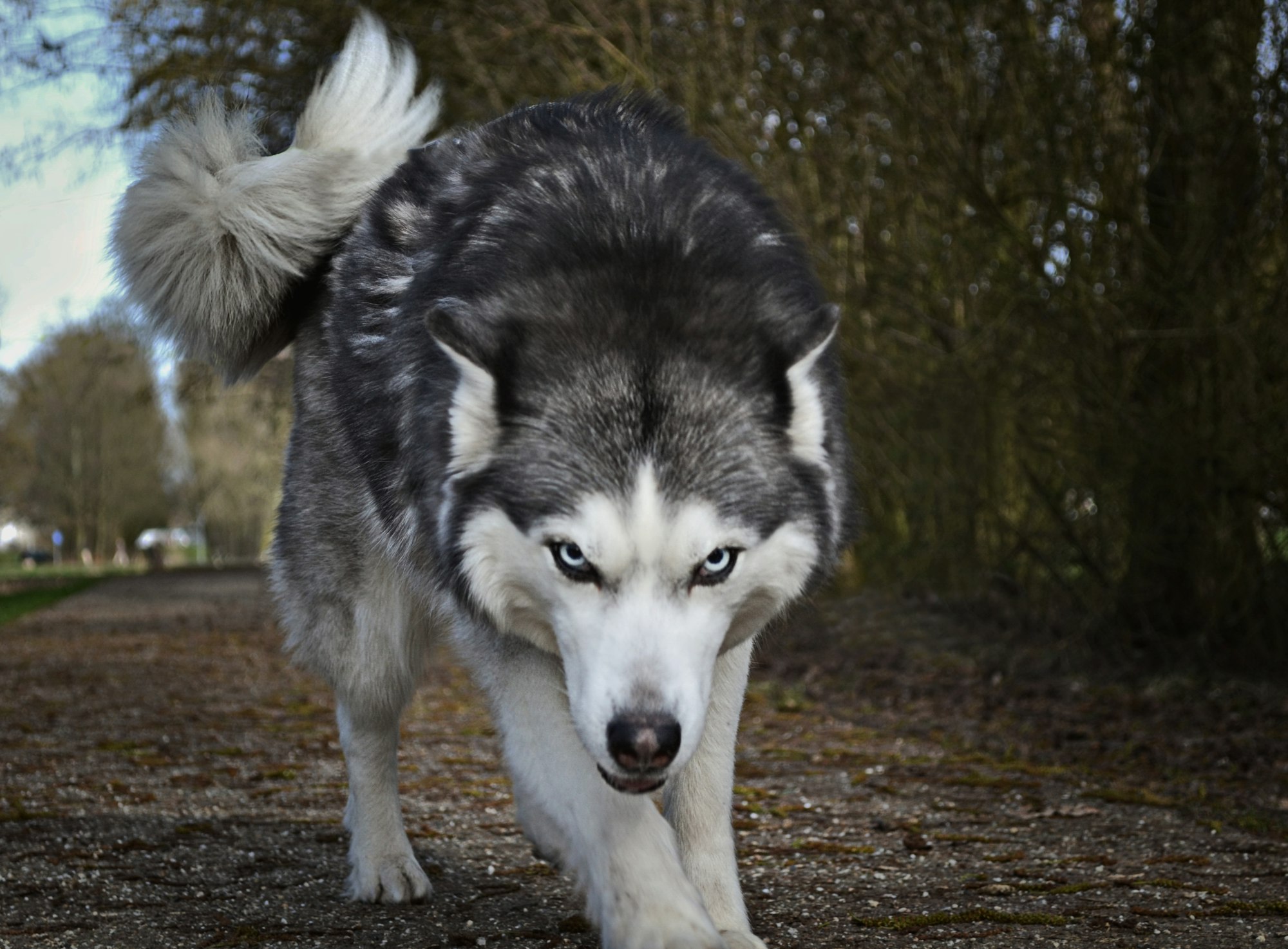
Dog Bed Related Aggression
Your Siberian huskies can also portray dog bed-related aggression. This behavior can make your husky protect their bed without letting anyone near it. Bed-related aggression can make your dog refuse to be moved to another bed or share it.
If your Siberian husky is aggressive because of its bed, it can be challenging to clean or change its sleeping position. To stop this, you can train them to sleep on different beds to avoid getting attached to a particular bed.
You can also provide enough beds for your huskies to prevent aggressiveness toward each other. Also, train your dog to get out of their favorite bed that they like protecting. You can show them where to sit or wait as you clean or arrange their beds.
Leash-Related Aggression
Some dogs also get aggressive if they are on a leash and wearing a collar. If your huskies get aggressive whenever you bring out the leash, they probably feel they can't run away from other aggressive dogs or people.
Your dog might also become aggressive toward the leash if it triggers pain or prevents them from achieving the target. Your husky will associate the leash with pain or frustration, making them aggressive towards it.
A leash-aggressive dog can bite you when you're putting the leash on. The dog can also attack another dog or passerby, and it becomes difficult to walk with them.
You can teach your dog to tolerate the leash and focus on other things. Train them to sit down instead of pulling aggressively to get off the leash. You can also train your dog to lie down if they feel threatened and look at you for assurance.
How Can I Make Sure That My Husky is Happy and Healthy?
An aggressive dog can never be at peace or happy as long as the triggers that make it behave this way are not addressed. Such a dog could be protecting their social status, property, or territory. Furthermore, aggression in dogs can also develop because of other health-related complications.
Some dogs don’t show physical signs of aggression, while deep inside, they are hurting. Your dog could be suffering from rabies, hormonal imbalance, or neoplasia.
Medical conditions can worsen if not treated in time. So, as the owner, you must take the necessary steps to ensure your husky is happy and healthy. Most Siberian huskies get aggressive because of health-related issues. You should take the necessary actions to prevent such behaviors in your husky,
First, if you suspect the aggressiveness on your husky is due to sickness, call the vet. The vet can determine if your dog is in pain or test for any underlying conditions. It could be that your husky has an internal injury or painful joints, making them aggressive.
The vet can perform x-rays to determine if your husky is okay, or put them on medication.
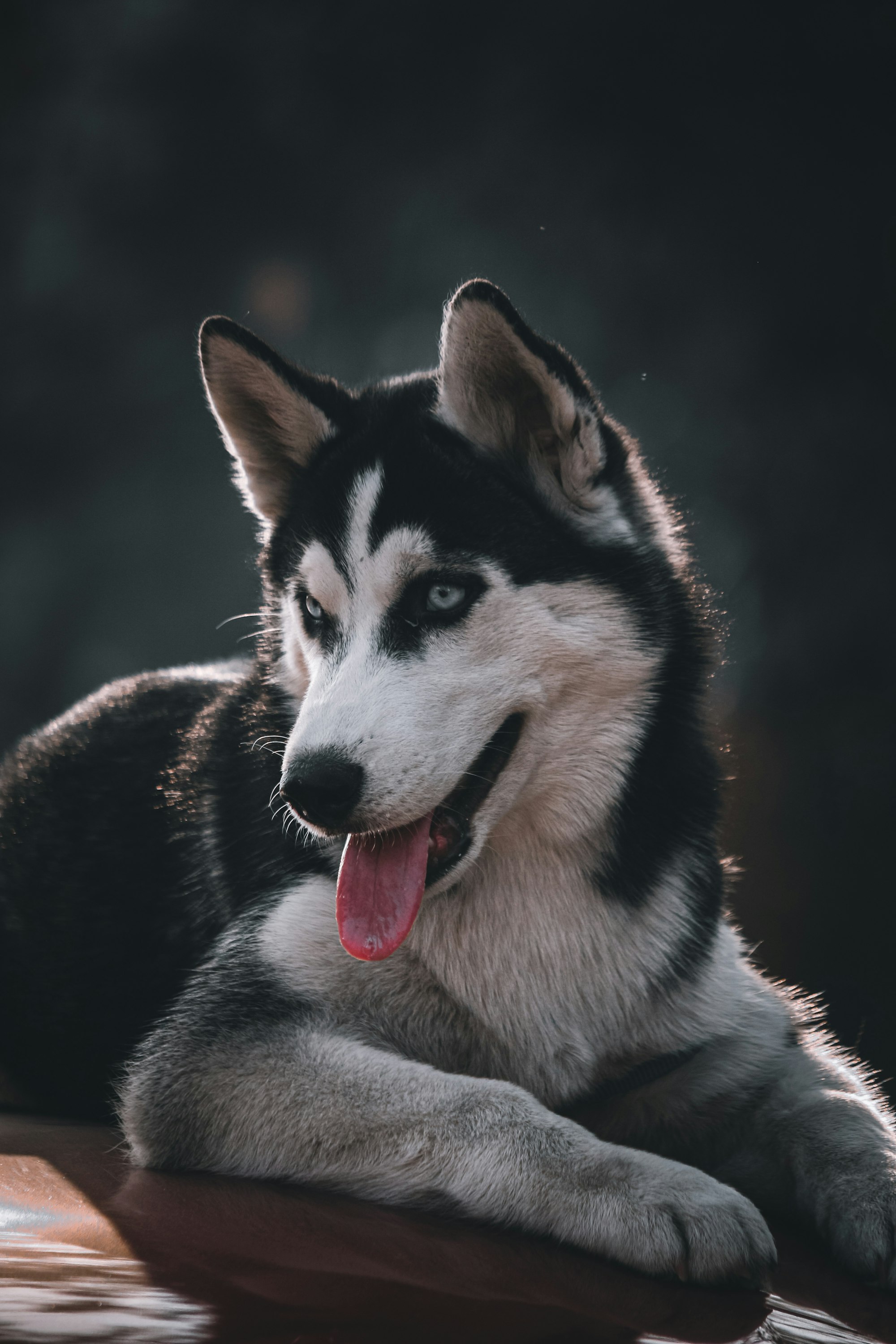
Make Sure You Offer Enough Exercise
However, exercising is the best way to ensure your husky remains healthy if there is no serious medical condition. Most dogs become aggressive because of their extra energy. To avoid this, you should introduce the right exercise routine for your husky dog.
The exercising sessions may keep your hyperactive dog tired. As you know, huskies are used to pulling sleds through the snow for several hours a day. So keeping them indoors makes them lazy with a lot of energy.
Introduce a one-hour exercising session to help keep your husky happy and healthy. You can go hiking with your husky after your job. Alternatively, you can run with them to keep both of you fit and healthy. Swimming, hide and seek, or enrolling in agility classes can help your super active husky dog.
But if you can afford the safety equipment and attach it to your bicycle, the better. Taking your husky to the dog park can also save you, as they engage in various physical activities that keep them fit and healthy.
Get the Help of a Dog Trainer
Working with a dog trainer is best if you can't afford to set aside one hour daily for your huskies. A qualified dog trainer can engage your husky in different training sessions that enable them to behave well. Your dog trainer can also help your husky be disciplined and respond to various commands faster when exercising.
The trainers can also teach you how to relate to the dog and keep it in perfect health. You can also learn how to keep your huskies healthy and happy for days with simple skills and tricks from your dog trainer.
How Do I Discipline My Husky Dog?
Your husky dog can decide to misbehave and be indisciplined, frustrating your efforts to have an obedient pet. Moreover, disciplining them is never easy since they are very sensitive and guilt conscious after causing trouble. Huskies can also try to talk and seem like they are quarreling with you when frustrated.
Such behaviors mean it's never easy to discipline a husky. However, you can achieve discipline by being patient and firm in your words or actions. Introduce obedience training to your husky without being loud or aggressive.
Remember, if you try being aggressive, it may provoke them and make them aggressive toward you. Your dog can also be anxious and fearful around you, making it hard to discipline them. The best thing you can do is to understand how to do this patiently without commanding dominance.
Discourage bad behaviors your husky may exhibit during the training. Set the obedience commands, boundaries, and rules for your husky. With all these, it gets easier to discipline your husky at home. You can also opt for group training for your furry friend and introduce treats and praise where necessary.
Are Huskies Aggressive Towards Other Dogs?
No! Huskies are not an aggressive breed. They don’t get aggressive toward other dogs unless cornered.
Huskies can get aggressive when protecting their favorite toy or food from other dogs. They can also be aggressive if they feel intimidated by the other dogs. Some huskies get aggressive towards other dogs to dominate them and feel like the leader.
Huskies that get aggressive towards other dogs can bite them. Proper training can prevent such aggressive behaviors and allow your dog to co-exist and interact with others peacefully.
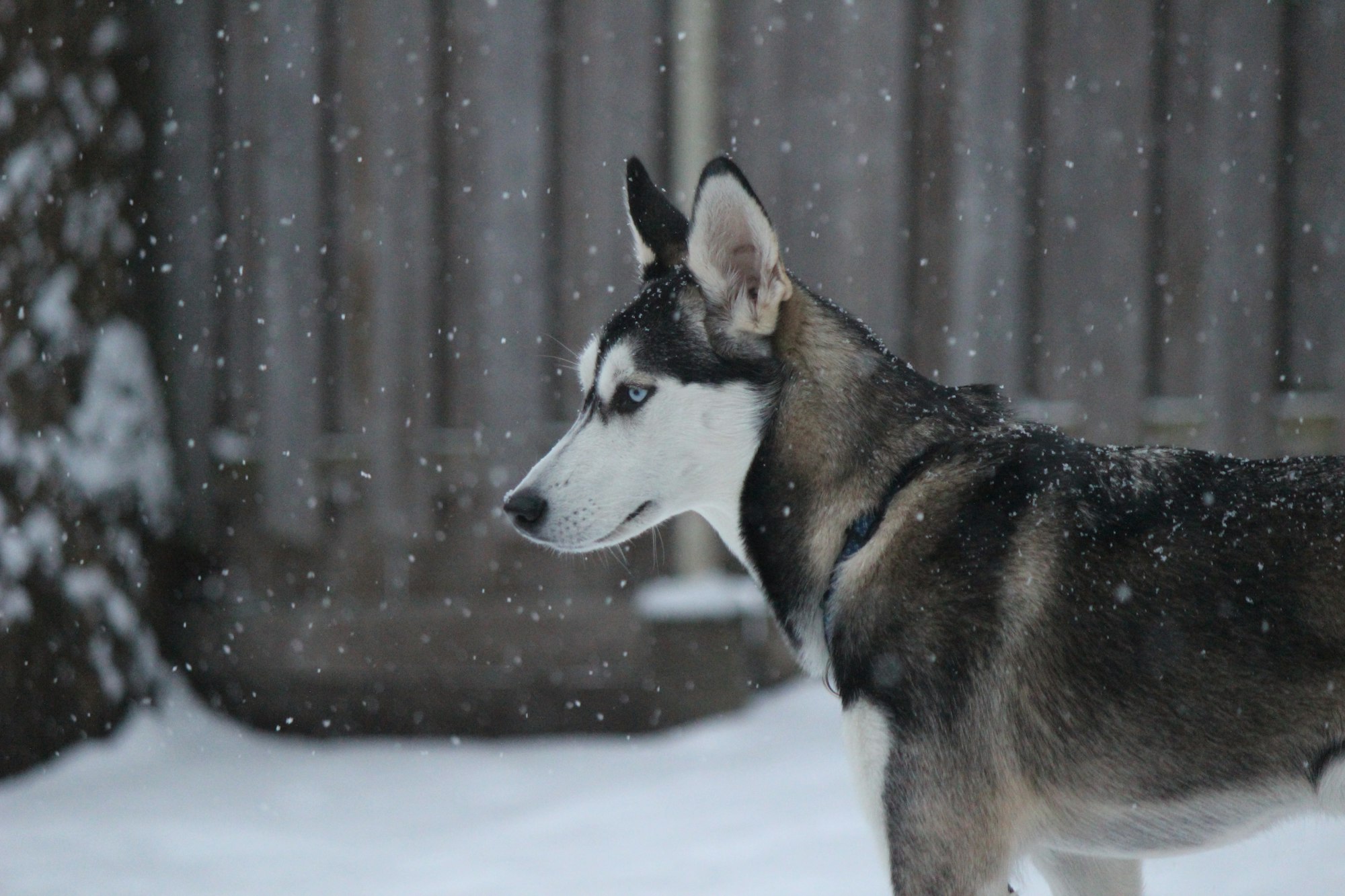
Are Female Huskies More Aggressive?
Most dog breeders and owners claim that female Huskies are more aggressive. But in reality, female Huskies are not more aggressive than males. However, they have different temperaments, which can be attributed to personality type.
Moreover, female huskies tend to be introverted and spend most of their time alone, but they experience mood swings. But being temperamental and introverted with mood swings doesn't prove that female Huskies are more aggressive.
Conclusion: Huskies Are Great Family Dogs
Both female and male huskies are good pets you will enjoy having at home. The Huskies are beautiful, affectionate, and charming. Their energy levels are also high, which can make them aggressive. But since aggression in dogs is correctable, you shouldn't worry about it.
Instead, adopt a husky into your family and check with your vet regularly to ensure your husky is healthy. Then introduce one or more exercise sessions per day or consult a dog trainer to help develop the dog's behavior and discipline level. A disciplined, healthy Siberian husky is a happy dog which translates to a happy family.
Get more expert advice on pet-parenting by visiting the Off Leash blog at TryFi.com.
TryFi's The Fi Dog Collar is a must-have for any pet parent, it's a GPS tracking collar that helps you keep tabs on your dog's location, activity, and sleep patterns, and alerts you if they escape your backyard. Try the Fi Dog Collar today!






